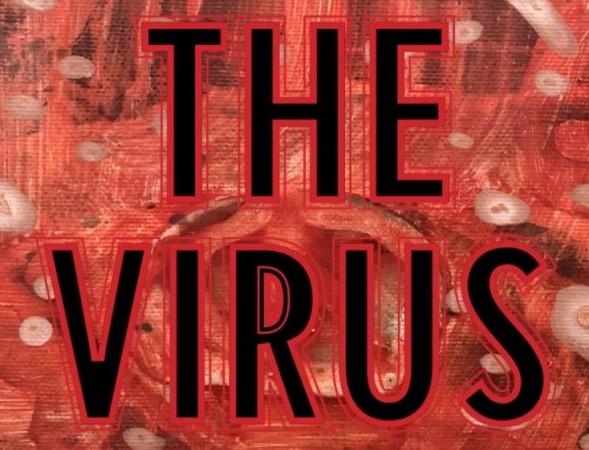Doctors at Sir Ganga Ram Hospital in Delhi last week were shocked to notice a rare fungal infection in over 20 patients, who had recently recovered from COVID-19, which led to four deaths and even infected the eyesight in other three patients.
Adding to the list of post-COVID complications, the black fungal disease is believed to have been triggered by the contagious infection and is airborne just like the SARS-CoV-2 virus.

What is Mucormycosis?
Medical experts have identified the black fungus infection, as Mucormycosis, and said it occurs when a person has a weakened immunity due to illness or any particular health condition, especially when one tests positive for Covid-19.
Doctors who have witnessed the rare infection in hospitals across Delhi have reported that there are numerous symptoms, varying from loss of eyesight, facial swelling, headache, nasal or sinus congestion, black lesions on nasal bridge or upper inside of mouth, fever, chest pain, shortness of breath, removal of the nose and jaw bone, blisters or ulcers, swelling around a wound and even death.
Media reports have stated that the infection may occur in almost any part of the body. In case, the fungus enters the body through inhalation, the infection will possibly infect the sinuses or the lungs. If it enters through the nose, then it spreads to the eyes, and muscles around the pupils may get paralysed which might lead to blindness. It may also cause meningitis if it spreads to the brain.
It can also enter the skin through a cut, burn or any other type of skin injury. If not detected early, the infection can even kill half the patients and lead to loss of vision or numb jaw in others.
Connection between Covid-19 and Mucormycosis

Mucormycosis is not contagious. Dr. Shaloo Bageja, senior eye surgeon at Sir Ganga Ram hospital informed The Hindustan Times that the connection between Covid-19 and Mucormycosis is the weakened immunity response, especially uncontrolled diabetes mellitus which is also a high-risk factor for COVID-19.
Many Covid-19 patients are given steroids and other drugs that might lower their immunity further, Bageja said.
While fungal spores are present everywhere, immuno-competent patients, a person who has a healthy immune system, is not affected by them. However, people who are immuno-compromised system (their immunity is suppressed) sucvh as those with the condition called neutropenia – which means the patient has a low WBC count, an HIV or cancer patient or a patient who's on immunosuppression steroids, or uncontrolled diabetes mellitus -- are most at risk with this fungal infection, the doctor explained.
Treatment for Mucormycosis infection
As per reports in Firstpost, one has to be quick to get diagnosed for the infection. The patient is given a combination therapy in the form of antifungal and cerebral and surgical debridement but it needs to be given quickly.
The antifungals used to treat Mucormycosis is Amphotericin B - which is available in the conventional form and also in the liposomal form which is less nephrotoxic. (Nephrotoxicity occurs when the body is exposed to a drug/toxin that causes damage to your kidneys.) The other two antifungals are posaconazole and isavuconazole, but the mainstay for therapy is amphotericin B, the report said further.
High cost of treatment
Some reports have even mentioned that the cost of treatment is around Rs 3 lakhs or even higher.
The cost of three to five milligram of dosage daily can be around Rs 10,000. The other antifungals such as, isavuconazole capsules can cost Rs 43,000. But the first and foremost thing to do is to keep the underlying condition, which makes a person prone to being infected, under control.
Secondly, patients who are immuno-suppressed should wear a mask, preferably an N95. While doing any activity like gardening or touching the soil, people should use gloves or long sleeves clothes, so that the spores don't enter the body somehow. Thirdly, if a person is on steroids, the dosage of steroids should be decreased, experts said.









!['Had denied Housefull franchise as they wanted me to wear a bikini': Tia Bajpai on turning down bold scripts [Exclusive]](https://data1.ibtimes.co.in/en/full/806605/had-denied-housefull-franchise-they-wanted-me-wear-bikini-tia-bajpai-turning-down-bold.png?w=220&h=138)



